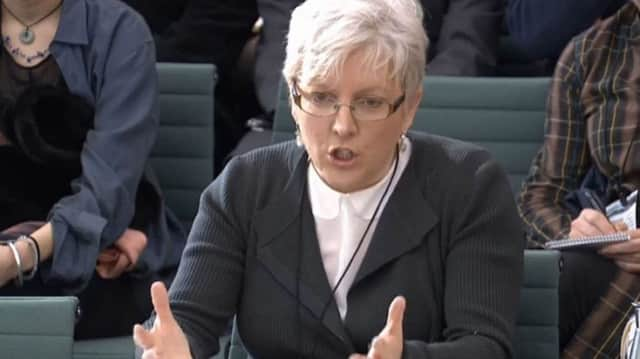Lord warns BBC's best radio presenters could quit over pay row


Lord Berkeley of Knighton, who presents BBC Radio 3’s Private Passions programme, raised concerns in the Lords over the use of personal service companies to avoid employer National Insurance contributions (NICs).
Accusing the BBC of “utterly disorganised and inept” dealings with its own employees, he said: “Many talented radio people are now questioning whether they can carry on working for the BBC.”
Advertisement
Hide AdHuw Edwards, Nicky Campbell, John Humphrys, Jon Sopel, Nick Robinson and Jeremy Vine are among some of the BBC’s most high profile presenters and have all accepted reduced wages.
Lord Berkeley’s comments came in a debate on independent radio production as the BBC faced allegations from female presenters over a gender pay gap.
The row was sparked by the decision of former BBC China editor Carrie Gracie to speak out after quitting the corporation over a pay imbalance, having said she was “very angry” about the way the BBC had treated some female members of staff.
Lord Berkeley said the BBC’s handling of HMRC’s IR35 directive on off-payroll working through an intermediary had caused “huge distress and hardship”.
He said many presenters had been “forced” by the BBC to set up personal service companies “often against their wishes”, but now the corporation was interpreting the directive as meaning virtually all freelancers must be put back onto pay as you earn (PAYE) tax.
Some had been required to pay tax in advance without knowing what they were going to earn, which was “devastating for many people with mortgages and families”.
Advertisement
Hide AdThe BBC had been “over-zealous” in its interpretation of the directive, Lord Berkeley said.
He added: “An organisation that is supposed to be expert at communication with the public has been so utterly disorganised and inept when dealing with its own employees.”
Advertisement
Hide AdLord Berkeley told peers: “All of this is a legacy of making people set up personal service companies so the BBC could avoid employers’ NICs.”
He also warned the disparity between national and local radio wages had “grown out of all proportion” and questioned whether some local radio staff were working below the minimum wage when the hours were taken into account.
Lord Berkeley asked why Radio 3 and Radio 4 presenters, apart from the Today programme, were “paid a fraction of what leading 6 Music presenters get” and urged greater pay transparency.
And he insisted he was not speaking out of “personal desire” because when it was pointed out he was being paid more than colleagues doing similar jobs, he volunteered to take a 33 per cent pay cut.
For the Liberal Democrats, Baroness Grender said the BBC often did lead the way, but the equal pay issue involving female presenters was an “outrage”.
She said: “The issue has shamed the BBC and the sooner they put this right the better. Until people know what different jobs are worth and where they sit on salary bands, the culture of secrecy, where unfairness can fester and breed, will sadly continue.”